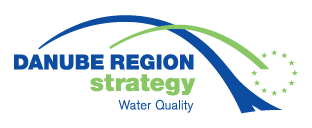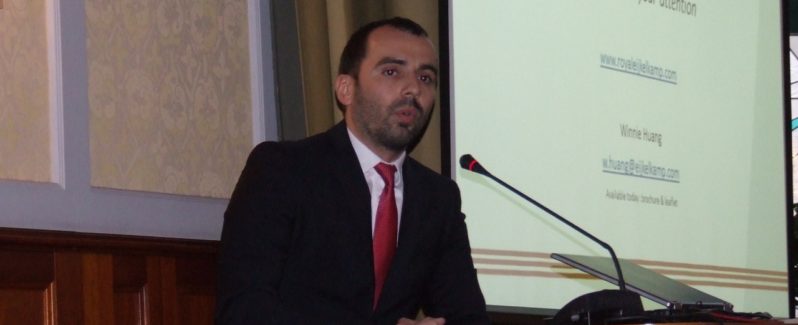The Hungarian leadership of the EU Strategy for the Danube Region (EUSDR) Water Quality and Environmental Risks Priority Areas held its Second Stakeholder Seminar in Budapest on 19-20 November 2015 paying special attention to the issue of funding possibilities. The event provided a comprehensive cooperation platform and offered an opportunity for alignment of funding with cohesion policy instruments and other potential sources specifically for water stakeholders.
Dozens of water management projects aiming at engaging international partners as well as development ideas of water management bodies of each country were presented by 162 participants and 42 speakers from 11 countries in Budapest. The European Commission Directorate-General for Regional and Urban Policy and the newly set up Danube Strategy Point representatives were present, similarly to several international water organizations and water experts from Danube countries.
Mr István JOÓ, the host Hungarian Danube Region Strategy Ministerial Commissioner stressed that issues such as water quality or flood protection may not be treated efficiently at national level and the success of the regional approach is clearly reflected by the improved water quality of Danube River. Hungary is coordinating the Danube regional cooperation and helping the non-EU member States integration efforts on areas of particular importance – such as energy, water quality or flood protection.
The Seminar’s keynote speakers emphasised that five years after the launch of the EUSDR the integration is strengthened among EU and non-EU countries and the Danube Transnational Programme has been launched with about 263 million euros grant. Mr Matija VILFAN, Head of the Danube Strategy Point, who chaired the first session pointed out that cooperation between the Danube Countries has entered into a new phase, meaning a more policy oriented debate and more focus on funding opportunities. Mr Marco ONIDA, Team Leader of the European Commission Directorate-General for Regional and Urban Policy reminded that countries still face challenges, better promotion of innovation, business support in water management, and stronger cooperation between countries is required. Adequate strategic planning is requested from Danube countries and the focus has to be put on the results to be in line with Europe2020 Strategy and beside joint cooperation more efficient use of funds is requested.
Following the keynote speeches of Hungarian, Slovakian and Romanian national coordinators and representatives the Water Quality and Environmental Risks Priority Area Coordinators of the Danube Strategy presented their state of play, followed by presentations of the Joint Research Centre and the International Commission for the Protection of the Danube River (ICPDR), focusing on science, policy and programme of measures 2015-2021.
In the second session the participants had a possibility to learn about the financial possibilities in the current programming period and were offered presentations about many programmes, such as about the key features and opportunities of Financial Instruments under ESI Funds 2014-2020, about Horizon 2020, the LIFE Programme, the Central Europe Programme, the Danube Transnational Programme, the Cross Border Cooperation Programs and the financing possibilities within the European Investment Bank.
In the third session of the first day successful project examples and best water sector practices were demonstrated (such as Watlife, URBAN_WFTP, SEE River and FLOODRISK projects) and experienced speakers shared their views about how to establish water consortium for projects in the new calls.
The 2nd day offered possibility for partner search process: focused presentations were shared with the audience from Austria, Czech Republic, Moldova, Romania, Slovakia, Ukraine and Hungary presenting country needs and assists in the alignment of funding procedure for future project beneficiaries by promoting further project ideas. Representatives of EIP Water Secretariat, the European Water Association and the Global Water Partnership shared their views on successful project set ups for water. Based on prefilled networking templates participants could take the floor and present their project ideas, networking needs in front of the plenary.
Finally, as a closing event the conference provided a unique platform for networking in four different sessions with experienced moderators: 1. Water scarcity, regional drought management; 2. Water security, regional safety centres, floods; 3. Water quality innovations and 4. Water management: fisheries, resource efficient water management, groundwater. The importance of cross-region cooperation and project development have been repeatedly mentioned; specific cooperation options have been explored, such as sharing best available practices in using innovations; a need to create special calls for bringing innovation on the market was also pointed. The networking sessions proved to be successful: the participants expressed their needs for follow up events and would welcome further assistance from the Danube Strategy in the alignment of funding that could result in joint projects.
https://www.waterquality.testeusdr.com/stakeholder-2015
EUSDR PA4, PA5 Stakeholder Seminar 2015: invitation and Agenda



